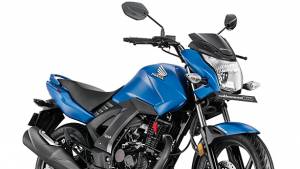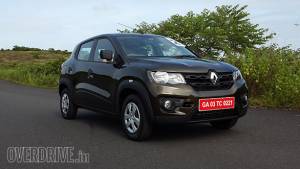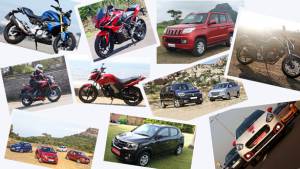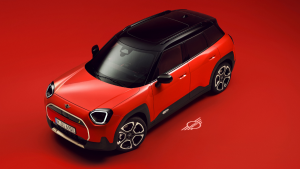Analysis: Could the Honda CB Unicorn 160 replace the old Unicorn and the Trigger?
If you look carefully at the spec sheets of the new CB Unicorn 160 and compare it to the CB Trigger and the old Unicorn, which continues to be on sale, something interesting emerges.
The first thing you will notice is that the CB Unicorn is currently alone in using the new 163cc engine. This engine is a stroked out version of the older engine. However, the thing to note is that the older nearly square engine is already on offer in two forms. The old 13.14PS 149cc Unicorn engine is set at 9.1:1 compression while the 14.35PS 149cc Trigger is offered at 9.5:1. As you know, raising compression causes internal combustion engines to run more efficiently and become able to extract more power and offer greater economy from the same amount of fuel. The flip side is that they also become more sensitive to the quality of the fuel used because the pressures are higher, which in turn means higher temperatures and the increased chance of auto ignition or knocking.
The new CB Unicorn 160 not only increases the stroke for a bigger engine, but it also raises the compression ratio further to 10.0:1. This is no surprise - our fuel quality has come a long way since 2005 and the new engines should be able to use the improvement to offer more power without any adverse effect. To wit, it is only the still higher compression engines in the CBU superbikes (higher than 11:1) that recommend RON95 or higher grades of fuel for full power operation.
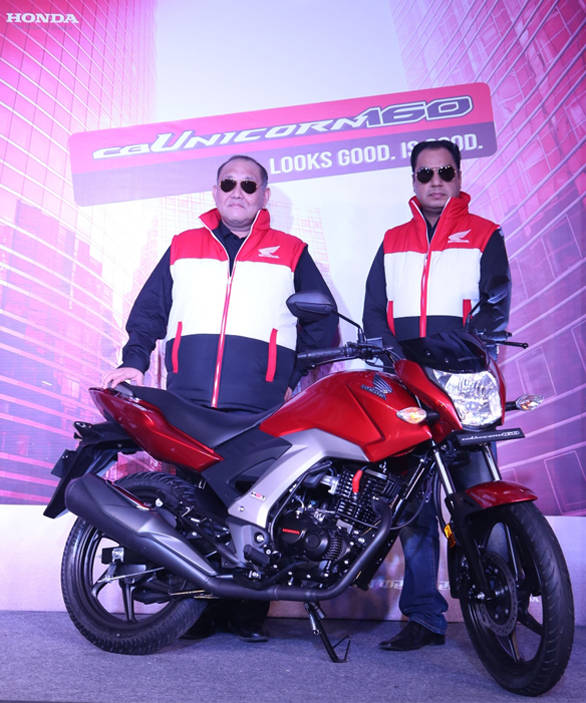
Now look at the price. The base CB Unicorn 160 is priced at Rs 69,350 ex-Delhi and the top model, which gains the combined braking system that debuted on the CB Trigger is priced at Rs 74,414 ex-Delhi. In effect, the CB Unicorn costs a substantial Rs 6,345 more than the old Unicorn, or nearly 10 per cent. Which is perhaps why it does not supplant the new bike but merely arrives above it as a more expensive option.
On the other hand, the base Trigger is priced at Rs 65,893 ex-Delhi and the top model is roughly Rs 1,300 more than the top CB Unicorn 160. Still more interesting is that the new Unicorn 160 uses the same tank as the Trigger but adds fresh bodywork and mildly restyled head lamp and a completely new tail lamp unit to create a new identity.
This, then, is a product line-up in flux as far as we can tell. Honda have not had a great hit in the 150cc segment right from the start in 2005. The Unicorn has always sold a steady, reasonable number but sales have not grown. The Dazzler was largely ignored by the market while the Trigger has received a warmer response but a hit it isn't either.
Strategically, Honda's 150 lineup - the new bike aside - is two steady-sellers that are now unlikely to bloom late and burn up the charts. Especially given that most of the competition is relatively new now. Yamaha has just rolled out the FZ v2, Suzuki's new Gixxer is excellent and we are now expecting the segment leader, Bajaj to roll out the new Pulsar 160NS shortly as well.
Honda CB Unicorn 160 vs Honda CB Trigger vs Honda CB Unicorn
| Motorcycle models | Engine capacity |
| Honda CB Unicorn | 149.1cc |
| HondaCB Unicorn 160 | 162.71cc |
| Honda CB Trigger | 149.1cc |
| Motorcycle models | Power |
| Honda CB Unicorn | 13.3PS |
| HondaCB Unicorn 160 | 14.7PS |
| Honda CB Trigger | 14.4PS |
| Motorcycle models | Torque |
| Honda CB Unicorn | 12.84Nm |
| HondaCB Unicorn 160 | 14.61Nm |
| Honda CB Trigger | 12.50Nm |
| Motorcycle models | Compression ratio |
| Honda CB Unicorn | 9.1:1 |
| HondaCB Unicorn 160 | 10:01 |
| Honda CB Trigger | 9.5:1 |
| Motorcycle models | Fuel economy (claimed) |
| Honda CB Unicorn | 60kmpl |
| HondaCB Unicorn 160 | 63kmpl |
| Honda CB Trigger | 60kmpl |
| Motorcycle models | Kerb weight |
| Honda CB Unicorn | 146kg |
| HondaCB Unicorn 160 | 135kg |
| Honda CB Trigger | 135kg |
| Motorcycle models | Price ex-Delhi |
| Honda CB Unicorn | Rs 63,695 |
| HondaCB Unicorn 160 | Rs 74,414 |
| Honda CB Trigger | Rs 75,107 |
And the current three names, six variants (total) line-up of Honda makes little sense in relation to one another. There's almost no reason in terms of performance or value left for the old Unicorn which still persists with its tubed tyres and happens to be a whopping 11kg heavier which does its engine performance no favours. Then the only reason left to get the older Unicorn is its 10 per cent cheaper price.
On the other side, the CB Unicorn 160 not only used the Trigger's tank, but it spans roughly the same price range and uses a bigger engine to offer a better top speed, more power as well as significantly more torque. Perhaps the only thing missing from the CB Unicorn 160's mix in feature terms is a rear disc brake.
What we expect will happen is that customers will see the value of the new bike and Honda's 150cc segment sales will gravitate towards the new CB Unicorn 160 and that should allow Honda to slowly re-establish order by eliminating the old Unicorn or both the Unicorn and the Trigger.
More from OVERDRIVE on the new CB Unicorn 160
Honda CB Unicorn 160 spec comparison
Starts Rs 93,593
163cc
5-Speed
12.91
14.00
-NA-
-NA-
163cc
5-Speed
14.71
14.61
62.00 Kmpl
Starts Rs 1,11,871
155cc
5-Speed
13.60
13.80
-NA-
Starts Rs 79,370
160cc
5-Speed
15.53
13.90
-NA-
Starts Rs 1,02,700
149cc
5-Speed
12.40
13.60
-NA-
Starts Rs 83,042
149cc
5-Speed
12.40
13.60
-NA-
Related Stories
Top Stories
Latest Videos
Most Popular
- Budget Sportbike Showdown: Kawasaki Ninja 500 vs Aprilia RS 457 vs Yamaha YZF-R3
- 2014 Triumph Daytona 675 vs 2024 Kawasaki ZX6R - A Decade of Evolution in Supersport Motorcycles
- Mumbai-Pune Expressway speed restrictions updated
- Nissan Magnite EZ-Shift review - is the AMT any good?
- Nitin Gadkari states that tax on Hybrids should be reduced to 12 percent in the coming future
